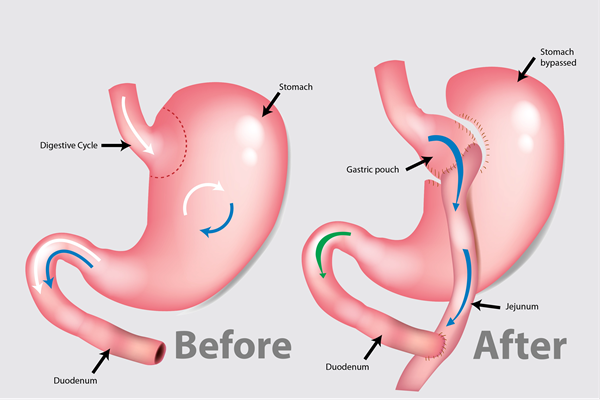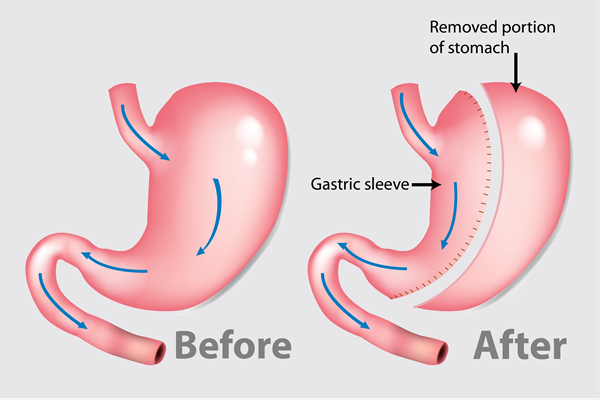Frequently asked questions

Which surgery is right for me?
Everyone's needs are different — that's why we offer two kinds of bariatric surgery.

Gastric bypass surgery
In gastric bypass surgery (also called Roux-en-Y surgery), the stomach is divided into two sections: a small section — called a “pouch” — and a large section. Depending on your BMI or surgical history this procedure may be done laparoscopically or with an open incision.

Sleeve gastrectomy surgery
Sleeve weight-loss surgery is also called a laparoscopic sleeve gastrectomy — or gastric sleeve for short. The surgeon makes six small incisions in your abdomen and uses a tiny camera and other instruments to perform the surgery through these openings.
How long is recovery?
Most patients take two weeks off from work after gastric bypass or sleeve gastrectomy surgery. When they return, they’re on light duty for four to six weeks. After that, they resume their regular work. Your surgeon will help decide what’s right for you.


What is life like after bariatric surgery?
The ultimate goal of weight-loss surgery is to improve your health. Surgery is a tool to achieve and maintain your health and weight-loss goals. Even after surgery, it may take months or years before you reach your goal weight.
To maintain your weight once you reach your goal, you will still need to commit to:
- Taking lifelong dietary supplements, including calcium and a bariatric multivitamin.
- Eating a variety of healthy foods — including vegetables, fruit, lean protein and low-fat dairy.
- Regular physical activity most days of the week.
- Drinking 48 to 64 ounces of recommended liquids daily – water, herbal tea, and certain sugar-free, non-carbonated, caffeine-free drinks.
- Never smoking or drinking alcohol.
- Following up regularly with your bariatric surgery team. We’re here to support you in your success!
Frequently asked questions